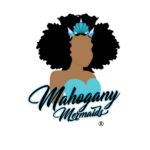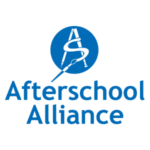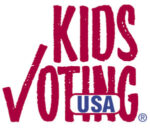Diversity & Inclusion
- ADD/ADHD (8)
- Diversity, Equality, Cultural Competency (57)
- Gender Responsiveness (16)
- Global Learning (14)
- Immigration (47)
- Inclusion/Disability Awareness (28)
- LGBTQIA2+ (45)
- Social Justice (51)
PFLAG has curated resources for those new to the conversation surrounding gender identity. These resources include national publications, online academies, books, films, and special topics.
To prepare and support communities as they participate in Trans Awareness Month (November), Advocates for Youth has prepared a toolkit with resources for immediate implementation. Resources include book lists, infographics, and video clips.
Waste Hero Education provides free lesson plans to achieve its aim of educating 1 million people by 2030 on zero waste, recycling, and the circular economy. Resources are available to empower children K-12 with the skills and knowledge to care for the planet.
This resource provided by the ACLU gives guidance to knowing your rights when questioned by law enforcement agencies and authorities. A copy of “My Rights Card” is available in this resource for use if needed. This resource is prepared in Spanish.
In celebration and honor of Native Heritage Month, the National Educational Association (NEA) offers year-round resources to share the narrative of Indigenous People groups.
Resources include lesson plan units for children grades Kindergarten through 12 that focus on history, accurate representation, Thanksgiving lesson plans from the Native American perspective, background resources, printables/posters, videos, and recommended readings. The curated collection is in partnership with organizations centered in social justice and advocacy.
NEA Note: “Educators should be mindful of cultural appropriation when teaching about other cultures and understand that Native American students in class may experience lessons differently than non-Native students.”
A Native woman-led racial and social justice organization, IllumiNative has created free resources (in partnership with the National Indian Education Association and Amplifier) that increase the visibility of and challenge the negative narratives of Indigenous peoples.
Resources available include youth and adult publications centered in advocacy, awareness, and research. Lesson plans include remote learning opportunities that explore the work of Indigenous leaders and changemakers in digital tool formats for grades PreKindergarten through 8th grades.
Created in August of 2016 by CEO Aliyah Griffith, Mahogany Mermaids promotes awareness and advocacy that create opportunities for children and youth of color to explore and join the aquatic sciences.
A primary goal of Mahogany Mermaids is to connect, impact, and outreach to as many students and youth as possible. To achieve this, they have offered education tools via their website to build ocean awareness and conservation efforts for students 4th – 12th grade. Their resource page also offers uniquely created activities connected to national aquariums as well as links to outside resources.
Election season presents an important opportunity to put afterschool on the radar of policy makers and the public in a visible and meaningful way.
The resources in this toolkit will help you spark conversations about afterschool with candidates for office in your local community or state. Included are talking points, sample materials, and information on how your non-profit organization can participate in the electoral process.
From iCivics Election Headquarters: The best way to strengthen our democracy is to teach it. Presidential elections provide one of the most visible teachable moments for civic education.
By discussing the election, the processes surrounding it, and the role of the people, we have the opportunity to build young people’s confidence in our country.
With free election-focused games and nonpartisan teaching resources specific to high school, middle school, and elementary students, you can help young people understand the power of their voice and vote, learn about state, local, and federal election processes, and become informed and engaged participants.
Kids Voting USA (KVUSA) is a national nonprofit organization working to secure the future of democracy by preparing young people to be educated, engaged voters.
Kids Voting USA Classroom Activities: 9-12 is designed to facilitate secondary school teachers in addressing civic learning objectives, especially those that relate to voting and elections. The resource is comprised of engaging activities that foster group discussion and the use of critical thinking skills.
The goals of Kids Voting USA classroom activities are for students to:





Together in a collaborative partnership, the Human Rights Campaign Foundation and OutVote offer a Campus Organizing Guide to the 2024 Election. This resource provides information and a step-by-step guide for college students to participate in the election as active voters. If a student is not yet registered to vote, the Campus Organizing Guide also provides information on how to do so.
The Family Acceptance Project at San Francisco State University offers the LGBTQ Youth & Family Resources page as an additional opportunity for families to access key resources and find support services.










